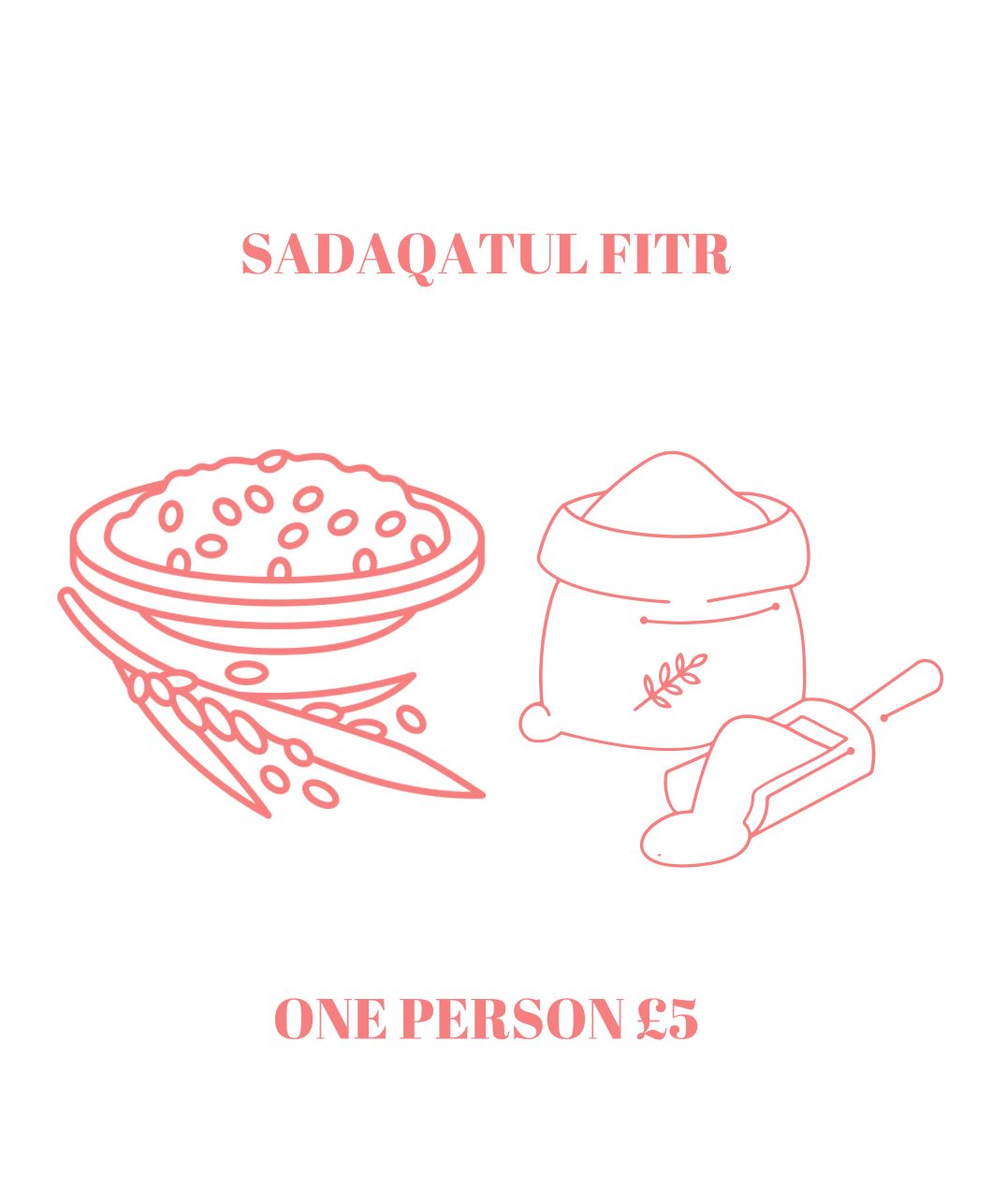Ibn Abbas reported:
The Messenger of Allah, peace and blessings be upon him, obligated Zakat al-Fitr as purification of the fasting person from vain talk and misbehavior, as food for the poor. Whoever pays it before the Eid prayer, it is accepted as Zakat. Whoever pays it after the Eid prayer, it is part of voluntary charity.
(Sunan Abī Dāwūd 1609)
Fitrana, also known as Zakat ul-Fitr or Fitrah, is an obligatory donation made by every member of a household before the Eid salah prayer. This Ramadan, it is essential for each family member to pay their Fitrana in the amount of £5 in order to provide sustenance for our impoverished brothers and sisters.
What is Fitrana?
Zakat ul-Fitr or Fitrana is a form of charity specifically designated to support the poor at the end of Ramadan. It is mandatory for every member of a household, including children and the elderly, to contribute before the Eid salah prayer. The calculated amount for this year’s Fitrana with MOA is £5 per person, representing the average cost of a meal. The Zakat al-Fitr donations are utilized to provide food for the vulnerable members of our community.
Ensure your Fitrana reaches those in need by donating as soon as possible. It is crucial to pay Fitrana before the end of Ramadan, ideally before the Eid prayers take place. By adhering to this specific timeframe, we fulfill our religious obligation and contribute to the well-being of those less fortunate.
What is the difference between Zakat and Zakat–ul-Fitr?
The difference between Zakat and Zakat ul Fitr, Fitrana, is eligibility. All Muslims must pay Zakat ul Fitr regardless of their age or financial status, unless they honestly do not have the means to do so.
The second difference lies in the amount due. The amount attributed to Zakat al Fitr, or Fitrana, is very small – it rarely exceeds £5. It is the same amount for all, regardless of financial situation. Zakat, however, can amount to a larger amount because it’s 2.5% of all net savings, and varies from person to person.
The third and final difference lies in their due dates. Zakat can be paid at any time, with the only condition being that the earnings reflect one year’s worth of net savings (one lunar year). Zakat ul Fitr, however, goes hand in hand with Ramadan. Fitrana, must be paid during Ramadan, before the Eid prayers at the very latest. This is a very specific time frame that all Muslims must abide to.
Where will my Fitrana go?
Your Fitrana will go directly to those who are needy, orphans and widows, through your fitrana we can feed them. It is wajib on every muslim.

